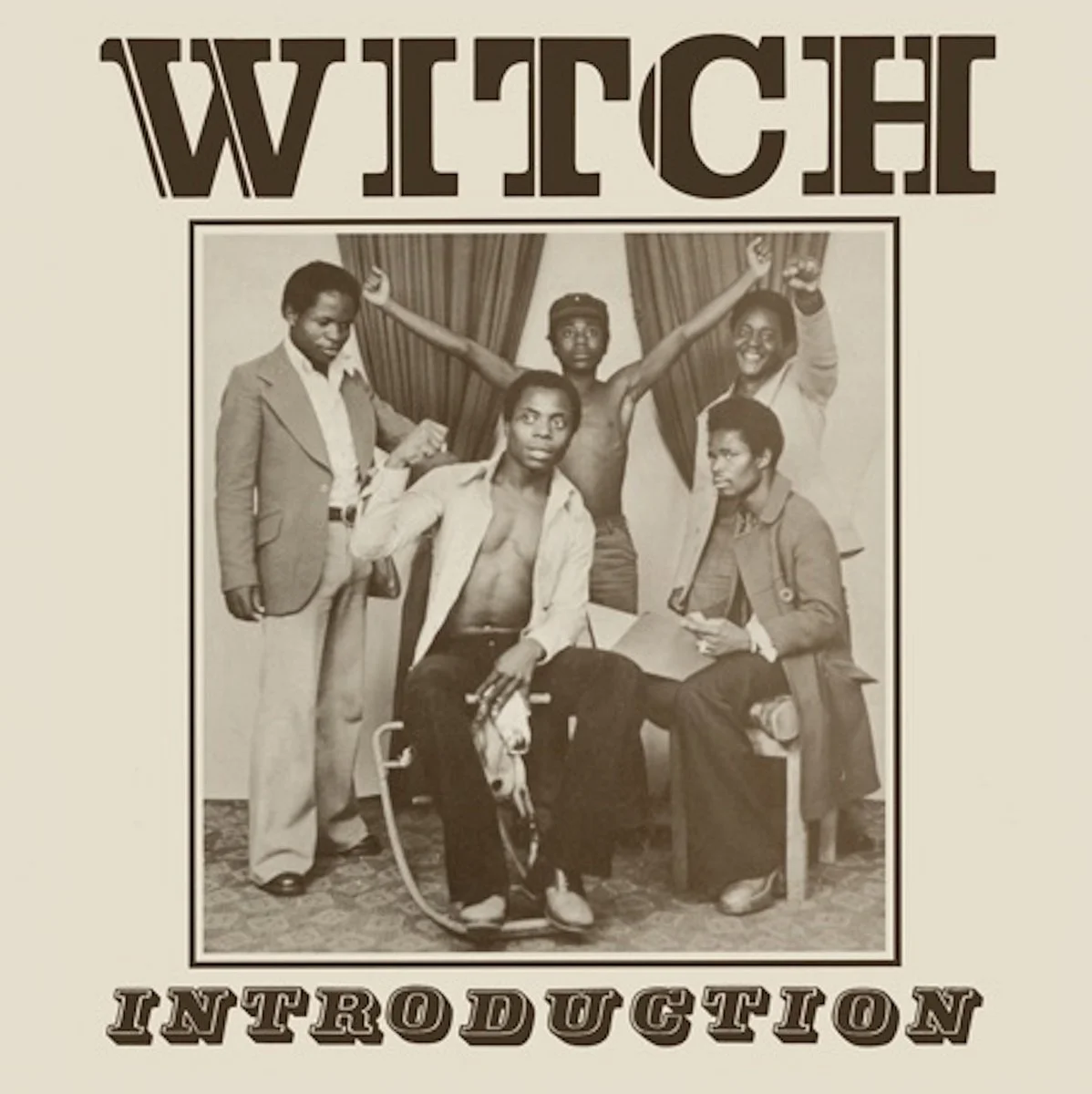OT BOP and Afro-Rock: A Genre Resurgence
NSG and The Compozers performing OT Bop Rock Version on GRM Radio. Source: GRM Daily
26th January 2024
By Oriane Kimvangu
Afro-Rock is a Thing Now?
In 2023, Nigerian-Ghanaian collective NSG shocked everyone with a Rock rendition of their famous Afrobeats track OT Bop. Teaming up with the band The Compozers, NSG breathed new life into the track, causing waves across social media. With the recent success of NSG’s OT Bop Rock Remix, there has been buzz surrounding the possibility of Afro-Rock being Africa’s next largest musical export. Considering the performance and reception of the remix, is there a genuine interest in the presence of Africans and black people in rock and adjacent genres? Or is it an isolated incident of a well-produced song remix going viral?
Back to Basics: The Origins of Afro-Rock
Zambian “Zamrock” Band W.I.T.C.H.
Source: Bandcamp
Nigerian Afro-rock band the Funkees
Source: Soundway Records
OT Bop Remix introduced Afro-Rock to a larger audience of young adults, but it is far from the first time Africans have tapped into the genre. In the 70s, Nigeria, much like it is now, was one of the best music factories in the world. Digital archives do not represent the cultural zeitgeist that was 70s Nigerian Rock captured audiences globally. It seamlessly incorporated elements of traditional Nigerian music, with the Western sounds of rock, funk, and other related genres. The most notable act of this era is the father of Afrobeat, Fela Kuti. Simultaneously, across the continent, the world of the Zambian “Zamrock” was thriving. Both of these eclectic genres were products of the political climates of their nations. Their lyrics spoke of rebellion, anti-institutionalism, and justice, in the tumultuous times of post-colonial Africa. The famous Zamrock band encapsulated these messages in their name W.I.T.C.H. standing for “We Intend To Cause Havoc”.
Culture and Chaos: The Decline of Afro-Rock
Metalheads pictured during parade in Botswana
Photo: Matjaz Tancic
After a promising bright trajectory of rock in the African continent, it has faded out over the years. While people of all ages enjoy and engage with rock music and media, the presence of rock is not heavy. The largely rebellious nature of rock is viewed as incompatible with African Identity. Classified as “white people music”, despite being created by Black Americans, kids who showed great interest were laughed at. Social conformity is a hallmark of the collectivist cultures that inhabit the continent. Evident in literature like Americanah by Chimamanda Ngozi Adichie, those who deviate from a social normal tend to face both subtle and overt alienation, which can further be extended to their loved ones and community. Furthermore, anyone and anything that is misunderstood is often labelled as demonic. It certainly doesn’t help that many Western rock bands aesthetically use religious imagery to tackle messages of anti-institutionalism. Other records speak about rebellion in a more juvenile nature, whether that be rejecting societal expectations, or choosing to forge your path. These lyrics directly conflict with more collectivism such as obedience, and submission. This is not to say that Africans did not or do not enjoy rock, but one will see that many of the tracks that see success centre around romance. However, this perceived cultural incompatibility is rejected by the younger generations of Africans. The Rise of Afro-Rock coincides with several cultural shifts within the African and the larger black communities. The rejection of respectability politics and self-suppression as maintenance of an acceptable image is part of the shift towards consumption and production of more rock-related media.
New Kids on the Block: The Future of Afro-Rock
Lady Donli and the Lagos Panic
Photo: Fawaz Gramz
Ghanaian rock band Dark Suburb
Source: Dark Suburb
The damaged reputation of rock has done nothing to suppress the millions of youth across the continent who call themselves rock fans. The resemblance between the intense drum beats and intricate melodies that we are used to in our traditional music makes the two beyond compatible on a musical level. Rock is seemingly the perfect vessel for African youths to vent their frustrations. Various artists across the continent and the diaspora continue to mix rock into the intricacies of African music. Nigerian artist and self-proclaimed “Pan-African Rockstar” Lady Donli is one of the most noticeable faces on the scene. Currently performing on stages across Lagos with her band the Lagos Panic, her genre-bending artistry continues to capture audiences. The band W.I.T.C.H. made a long-awaited full comeback with the album “Zango” in 2023, heavily reminiscent of their old sound. The prospect of more Black people in rock, especially incorporating African styles of music, is exciting. The OT Bop remix proved that people are highly receptive to the idea, as music listeners yearn for more innovative music. It may be time for a new generation to rebirth the era that was once Afro-Rock.
References
Balmont, James. “Witch: The Glory and Tragedy of Zambia’s Psych-Rock Trailblazers.” The Guardian, 5 July 2021, www.theguardian.com/music/2021/jul/05/witch-the-glory-and-tragedy-of-zambias-psych-rock-trailblazers.
Kogbe, Temitope. “Nigerian Psychedelic Rock: The Music You Need to Know.” Explore Parts Unknown, 12 Oct. 2017, explorepartsunknown.com/lagos/nigerian-psychedelic-rock-the-music-you-need-to-know/.
“Lighting up Lagos: The Stars of 1970s Nigerian Rock Music - in Pictures.” The Guardian, 6 June 2016, www.theguardian.com/artanddesign/gallery/2016/jun/06/1970s-nigerian-rock-music-stars-wake-up-you.
McNair, James. “The Golden Days of Nigerian Rock.” The National, 18 May 2016, www.thenationalnews.com/arts/the-golden-days-of-nigerian-rock-1.204567.
Okoroafor, Cynthia. “Why a History of the Rise and Fall of Nigerian Rock Music Matters.” Ventures Africa, 5 May 2016, venturesafrica.com/features/behind-the-music-the-rise-and-fall-of-nigerian-rock-makes-a-case-for-why-history-and-culture-preservation-in-nigeria-should-matter/.
Staff, NPR. ““Wake up You!” Explores the Transitional, Post-War Rock “N” Roll of Nigeria.” NPR, 24 Apr. 2016, www.npr.org/2016/04/24/475138787/wake-up-you-explores-the-transitional-post-war-rock-n-roll-of-nigeria?t=1602538691911.
“The Roots of Psychedelia and the Explosion of African Rock Music.” Originalfuzz.com, 18 Nov. 2016, originalfuzz.com/blogs/magazine/the-roots-of-psychedelia-and-the-african-rock-explosion-of-the-60-s-and-70-s#:~:text=On%20the%20heels%20of%20a.
Udofa, Ama. ““The Devil’s Music” No More: Inside Nigeria’s Rock Resurgence.” Rolling Stone, 19 June 2022, www.rollingstone.com/music/music-features/nigerian-rock-music-clayrocksu-1365700/.
“Zamrock: An Introduction.” Daily.redbullmusicacademy.com, daily.redbullmusicacademy.com/2014/01/zamrock-introduction-feature.
Zhou, Minna. “Various Artists: Wake up You!: The Rise & Fall of Nigerian Rock 1972-1977.” Pitchfork, 26 May 2016, pitchfork.com/reviews/albums/21536-wake-up-you-the-rise-fall-of-nigerian-rock-1972-1977/.







